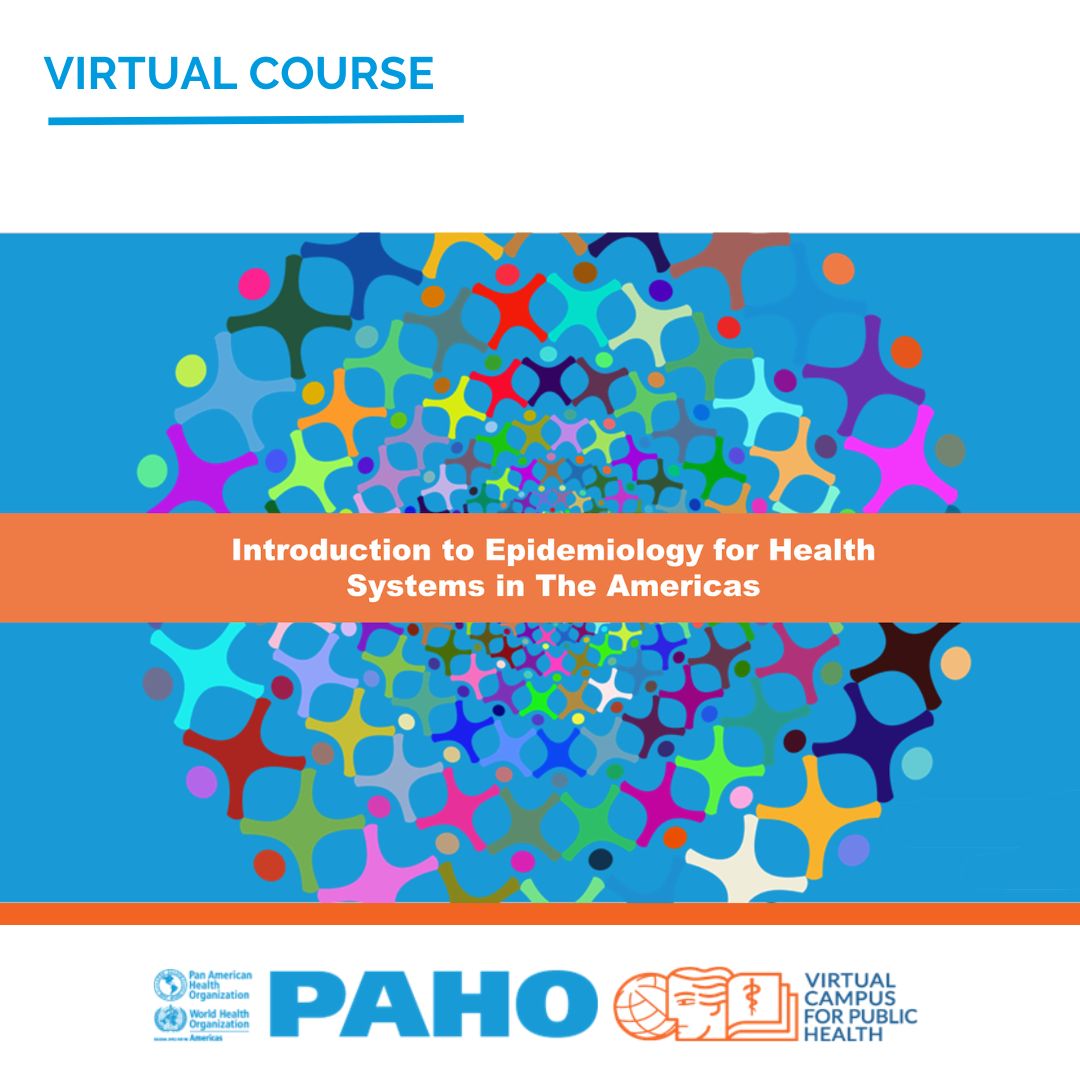Epidemiology for the Americas - Introduction level - 2021

Introduction
Public health is the science of protecting and improving the health of people and their communities. While medicine works to treat the sick, public health focuses on prevention and improving quality of life. The work of public health is achieved by promoting healthy lifestyles, researching disease and injury prevention, as well as detecting, preventing and responding to health outcomes. One way this is achieved is through epidemiology. Epidemiology is the study of the distribution (frequency, pattern) and determinants (causes, risk factors) of health-related states and events (not just diseases) in specified populations (neighborhood, school, city, state, country, global).
In response to different mandates of the Organization related to the generation of evidence and intelligence for health, the course "Introduction to Epidemiology for Health Systems in the Americas” provides the necessary elements to develop the basic skills, fundamental to epidemiology as a basis for the development of analytical skills and problem solving in epidemiological practice. The contents facilitate the fulfillment of two new essential functions in public health: (1) "The monitoring and evaluation of health and well-being, equity, the social determinants of health and the performance and impact of health systems", and (2) “Surveillance in public health: control and management of health risks and emergencies”. Among those mandates is worth to mention: PAHO Disease Elimination Initiative: Policy for Applying an Integrated and Sustainable Approach to Communicable Diseases in the Region of the Americas (Document CD57/7); International Health Regulations; Plan of Action for the Prevention and Control of Noncommunicable Diseases (Document CD52/7, Rev.1); Plan of Action for Strengthening Vital Statistics 2017-2022: Midterm Review, CD58/INF/14; Plan of Action on Human Resources for Universal Access to Health and Universal Health Coverage 2018-2023 (Document CD56/10, Rev. 1).
Course Purpose
This course introduces the participant to basic public health and epidemiology concepts. Including basic definitions, calculations, understanding concepts and how to apply them, as well as the importance of collaboration and partnerships.
Learning Competencies
Course participants will have opportunities to develop competencies related to evidence-informed practice and communication, such as:
-
Applies the principles of evidence-informed practice
-
Assesses data and information from a range of sources
-
Manages information sharing and documentation
Learning Objectives
Throughout the course, it is expected to contribute so that the participants achieve:
- A better knowledge on how the conditions in the environments where people are born, live, learn, work, play, worship, and age affect health, functioning, and quality-of-life outcomes and risks.
- An understanding of how public health activities are aimed at protecting and improving the health of people and their communities.
- A better knowledge of the key role of epidemiology supporting public health activities to assess the magnitude and distribution of health-related states and events (not just diseases) in specified populations.
Target Audience
This first introductory level course is directed towards the general public with an interest in public health and epidemiology, as well as those persons working in public health departments, particularly at entry level public health or epidemiology roles, as decision-makers in charge of developing policies, planning programs and implementing them in public health departments and health service organizations with little to no formal training in epidemiology or public health.
Course Structure
Module 1: Introduction to Epidemiology and Public health
Module 2: The Foundation of Public Health and Epidemiology: Diversity, Health Equity, Social Mobilization, Collaboration, & Communication
Module 3: Practical Applications of Epidemiology
Module 4: Descriptive Epidemiology: Person, Place, Time
Module 5: Association & Causality
Didactic Strategy
This is a self-study, free, open to the public and self-administered course. The course is done online, on the Virtual Campus for Public Health (VCPH).
Assessment and certification
Participants who meet the course approval requirements - complete all five modules and pass the evaluation questionnaire final- and answer the quality survey of the VCPH will be able to download their certificate of approval, issued by the Pan American Organization of Health (PAHO).
Acknowledgments
This course is being carried out within the framework of a work agreement with the Association of Schools and Programs of Public Health (ASPPH).
